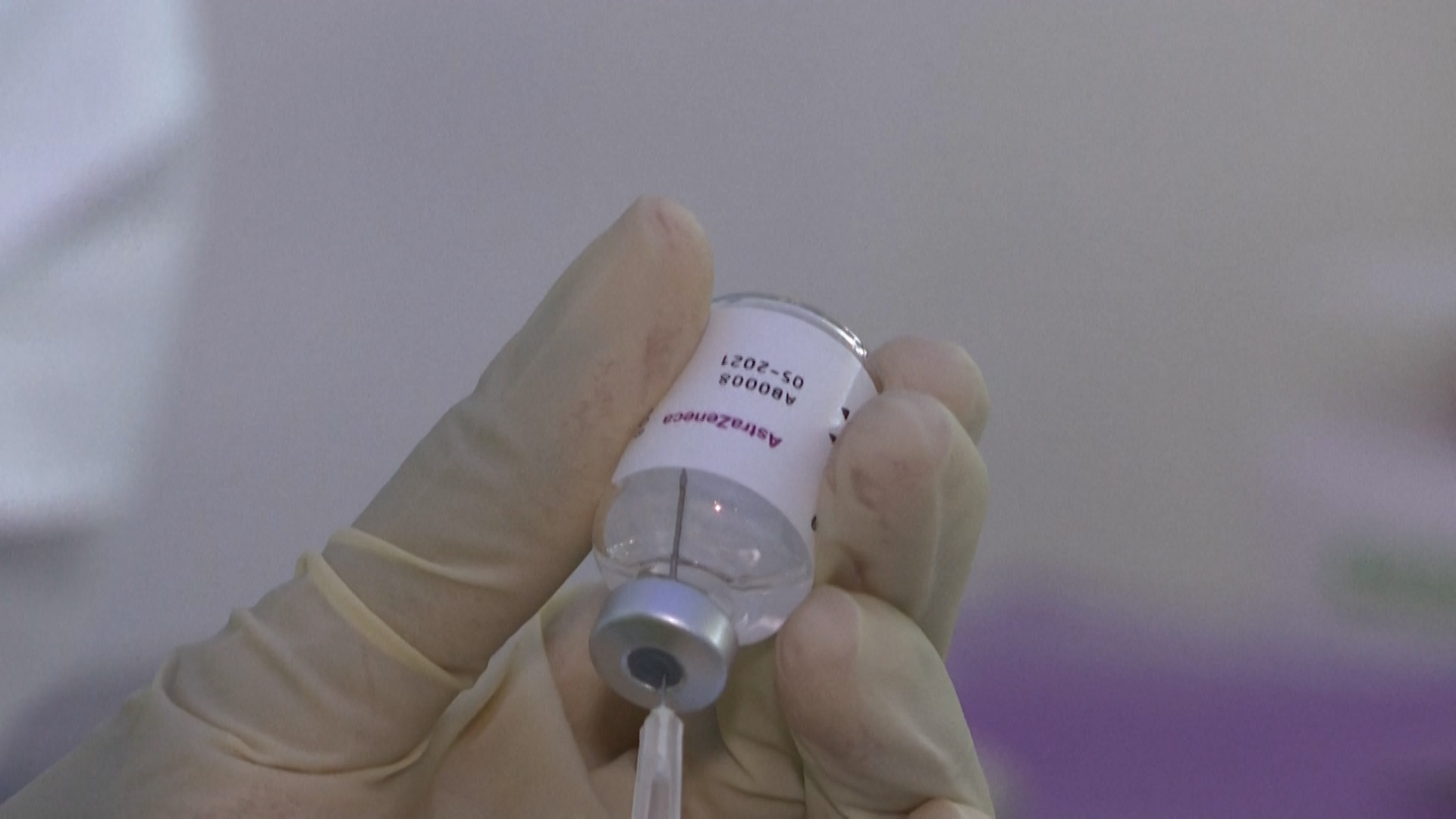The row between the European Union and the UK isn't likely to go away before a meeting of EU leaders next Thursday.
Last week European Commission President Ursula von der Leyen said the EU would consider stopping vaccine exports to some countries, including the UK.
02:27

That stance has prompted accusations of "vaccine nationalism," with UK defense minister Ben Wallace saying on Sunday the EU shouldn't "build walls" around vaccine distribution.
Meanwhile, Commission Vice President Mairead McGuinness told the BBC's The Andrew Marr Show that all parties needed to look at the situation "dispassionately." She called for "a global view of where vaccines are being produced and the raw material supply chain to companies manufacturing them."
McGuinness acknowledged that many EU citizens were angry that the vaccine roll-out has not gone well – especially because of supply issues with companies such as AstraZeneca. She said the EU had supplied more than 40 million doses of vaccines to other countries.
Noting that the UK government website lists more than 100 pharmaceutical products which cannot be exported from the UK, McGuinness suggested "one could describe that perhaps as vaccine nationalism."
Appearing on the same program, Wallace countered that the EU must meet its contractual "obligations." He said: "The EU stands for the rule of law... and that means we should all abide by our contracts."
The row could lead to fewer vaccines being available in the UK, which has so far successfully immunized more than half its adult population against COVID-19.
The UK government denies any official policy of not sharing with the EU, or retaining vaccines for UK citizens first.
In parliament two weeks ago Prime Minister Boris Johnson said the UK had "not blocked the export of a single COVID-19 vaccine or vaccine component."
The UK authorized and purchased vaccines weeks before the European Union. In January, AstraZeneca CEO Pascal Soriot was quoted as saying that his company's contract with the UK government was on the basis that "you supply us first."
Germany, France and Italy seem to support the view taken by Von der Leyen, but questions remain as to why the EU was slower than the UK and U.S. in backing vaccines and buying large quantities of them before their approval.
Several European countries have also slowed vaccine roll-outs by stockpiling them or questioning their efficacy.
With increased numbers of COVID-19 cases affecting several European countries, and the UK pulling ahead in vaccinating as many of its citizens as it can, the row appears to be escalating.

